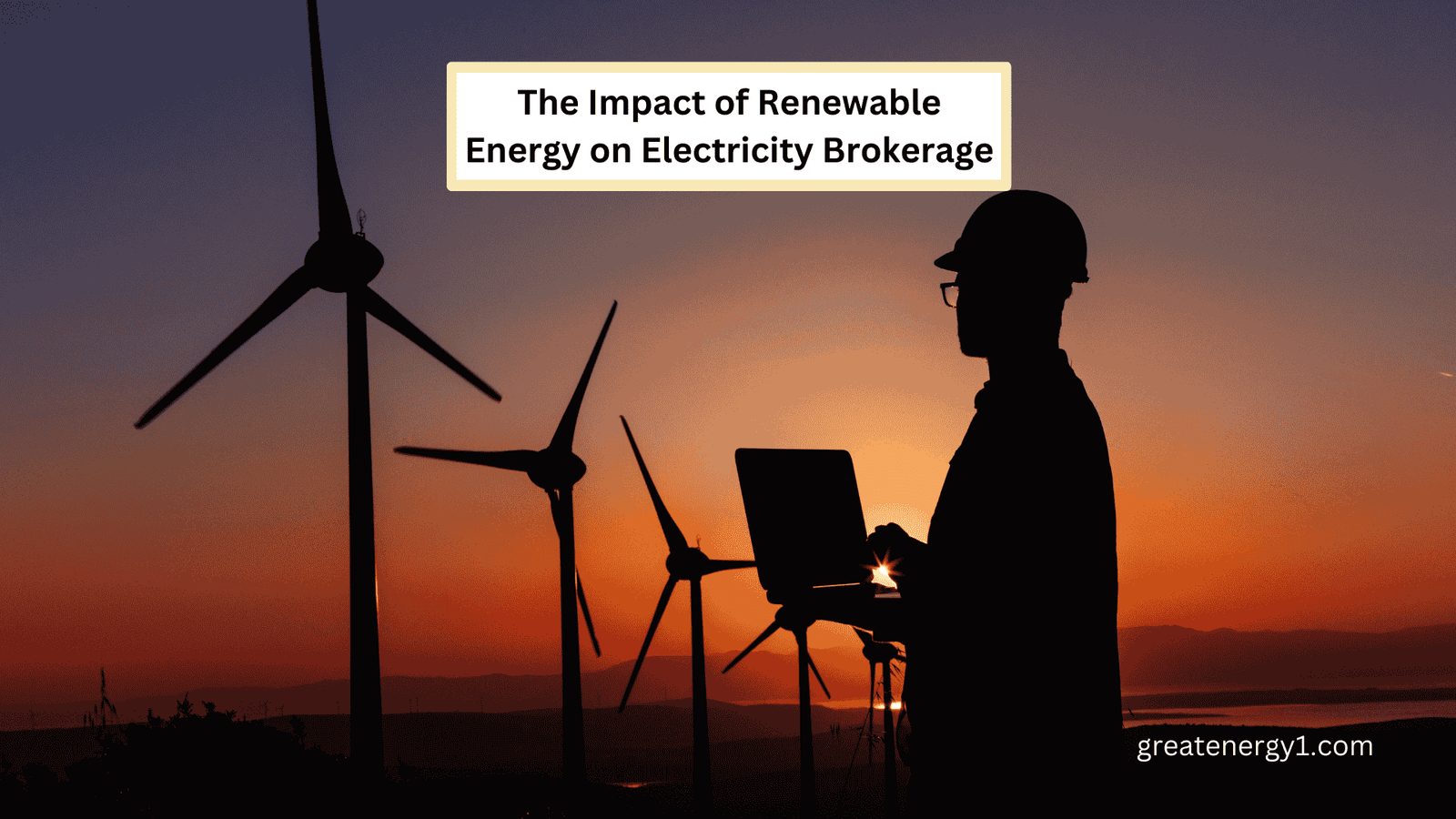Renewable energy is reshaping the global energy landscape. It comes from the sun, wind, water, and geothermal heat sources, which are natural, replenishable resources. As countries work to reduce carbon emissions, renewable energy is gaining importance. This shift affects many areas, including electricity brokerage.
Electricity brokers play a key role in energy markets. They connect energy producers with consumers, negotiate prices, and optimize energy transactions. However, the rise of renewable energy is changing how they operate.
Why Renewable Energy Is Growing
The world is moving toward renewable energy for several key reasons. First, it helps fight climate change by reducing harmful greenhouse gas emissions. Governments are also supporting this shift with policies and incentives.
Advances in technology are another big reason for the growth of renewables. Better solar panels, wind turbines, and batteries have made clean energy more affordable and widely available. Today, renewable energy accounts for a growing part of global electricity production, and this trend is expected to continue.
Related Blog:
How Global Events Affect Local Electricity Markets?
How Renewable Energy Is Changing Electricity Brokerage
Decentralization is a major shift in energy systems. Traditional models depend on large power plants supplying electricity to the grid, with brokers managing transactions. Renewable energy introduces many small-scale producers, such as homeowners with solar panels, who generate and sell their electricity.
Renewable energy is intermittent, relying on weather conditions. This unpredictability challenges brokers using advanced forecasting tools to balance supply and demand.
Related Blog:
Tips To Reduce Your Electricity Bill
Technologies Supporting Renewable Energy Brokerage
Technology plays a vital role in managing renewable energy:
- Smart grids collect real-time data on how much energy is produced and used. This helps match energy supply with demand.
- AI and analytics predict the amount of renewable energy produced and help create better trading plans in changing markets.
- Blockchain technology makes transactions secure, transparent, and automatic. Smart contracts handle payments without middlemen, saving money and time.
- Energy storage, like batteries, stores extra energy for later. This keeps the supply steady and helps manage renewable energy more efficiently and effectively.
Related Blog:
The Role of Electric Vehicle Adoption on Electricity Demand
Benefits of Renewable Energy for Electricity Brokerage
The growth of renewable energy opens new chances for brokers. They can make money in decentralized markets and offer special services for renewable energy.
Consumers also win because they have more energy choices and control. Brokers help by linking them to green energy options.
Renewable energy is also good for the environment. Brokers who deal with clean energy help cut carbon emissions, which supports global efforts to fight climate change.
Related Blog:
Benefits of Using an Electricity Broker for Your Business
Challenges in Managing Renewable Energy
While renewable energy offers many benefits, it also presents challenges. One major issue is managing supply-demand imbalances. Solar and wind power are unpredictable, so brokers must find ways to stabilize the market.
Another concern is the infrastructure limit to handling renewable energy grids. Grids and trading platforms need efficient investment and collaboration.
Related Blog:
Current Trends in the Electricity Market: What to Expect in the Next Decade
Future Trends in Renewable Energy Brokerage
The future of electricity brokerage lies in innovation. AI and machine learning will play a bigger role. These technologies will make forecasting and trading more efficient.
Microgrids are another emerging trend. These small-scale energy systems operate independently of the primary grid. Brokers can play a key role in connecting microgrids with broader energy markets.
Globalization is opening new opportunities for brokers. Renewable energy markets are expanding internationally, creating a demand for brokers who can navigate international markets.
Related Blog:
How to Choose the Right Electricity Broker for Your Needs
Conclusion
Renewable energy is changing electricity brokerage, creating new opportunities and challenges. As more people and businesses produce energy from sources like solar and wind, brokers now work in a more decentralized system. They use smart grids, AI, and blockchain technologies to match energy supply with demand, predict energy production, and ensure smooth transactions.
Though managing unpredictable energy sources and upgrading infrastructure can be difficult, solutions like energy storage and microgrids are helping. Brokers who adapt to these changes can offer better services, support renewable energy growth, and help fight climate change. This shift benefits everyone—brokers, consumers, and the environment.
